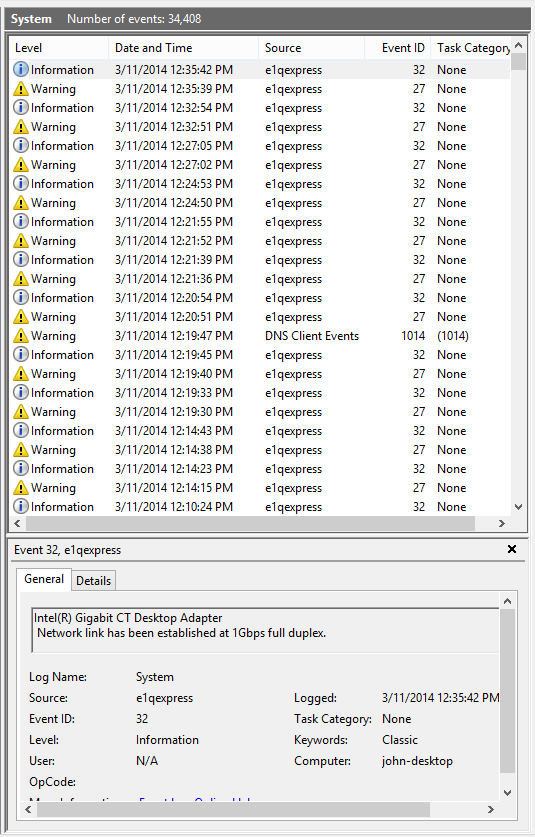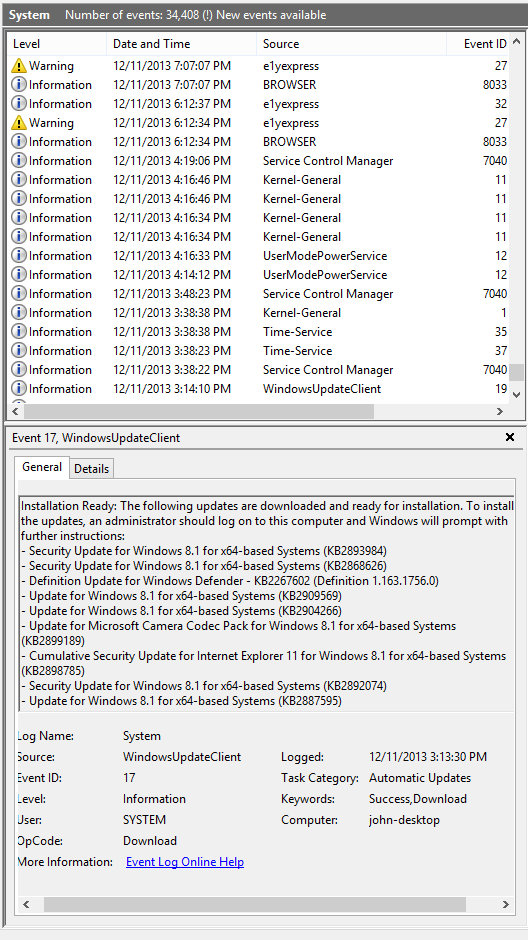I began having intermittent wired network connection issues after upgrading to Windows 8.1, and they seem to be getting worse. The issue manifests as the network connection becoming unavailable for a few seconds (3-5) and coming back online. When this happens,
the network's icon in the control panel becomes greyed out with a red X and the label says "Network cable unplugged". Any active network connections are interrupted and/or fail - think file transmissions, interrupted video streams, degraded skype calls, etc.
This seems to happen as frequently as once every 20 seconds for a few minutes at a time and as infrequently as once every 20 minutes. The frequency "seems to" increase whenever the network is under heavier load (ie, copying files, streaming audio / video, playing
games), althought that could be my own bias because I'm paying closer attention.
When checking the System event logs, there's an entry with Event ID 27 that says "
My system is a custom built computer with an Intel i7 CPU, 960GB SSD and 24 gigs of RAM.
Motherboard: ASUS Rampage III Extreme (LGA 1366)
Embedded NIC: Intel(R) 82567V-2 Gigabit
Driver: e1yexpress
I suspected the embedded NIC might be going bad, so I swapped it out for a new one. I installed the new NIC, disabled the embedded NIC in the motherboard's BIOS, but the problem persists with the new NIC as well.
New NIC: Intel(R) Gigabit CT Desktop Adapter
Driver: e1iexpress
I also updated the driver to the latest available from Intel's website, also to no avail. The Intel provided drivers came with a set of further diagnostics (connection, cable and hardware) which all passed successfully, though honestly this doesn't seem to
be a NIC specific issue given I've had the same exact behavior on two different NICs. Only thing that seems to be consistent between the NICs is that they are Intel Gigabit controllers.
I then suspected a faulty cable, so I tried changing the ethernet cables (CAT5e for a CAT6) as well as using different ports on the switch (to one's that have been working with other devices) but that didn't yield any results either.
I also have two other devices connected to the same gigabyte switch (Linksys SD2005): a MacBook Pro laptop and a Synology NAS server (Linux based), neither of which are displaying this behavior.
I'm at my wit's end. Any ideas?



